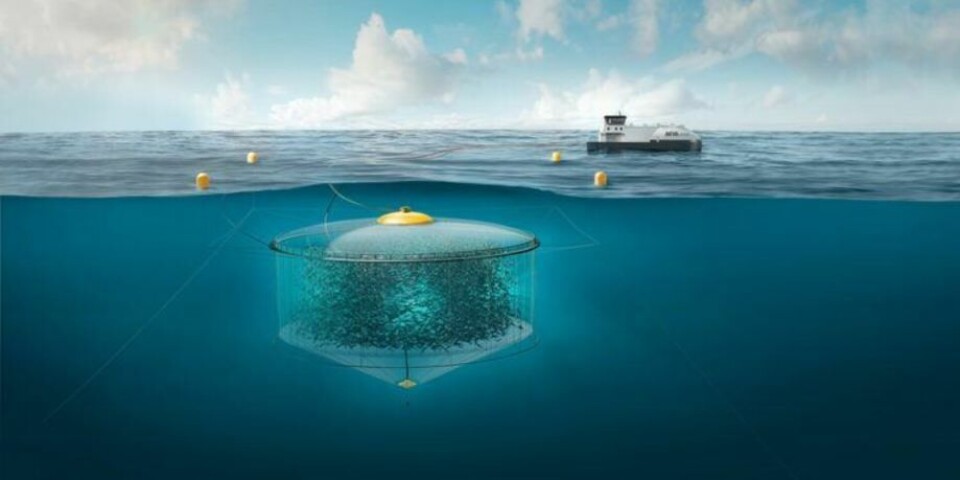
Subsea farming project scaled down
The owners of Atlantis Subsea Farming have decided to press ahead with testing their salmon farm concept “with reduced scope” after getting just one of the six Norwegian development permits they applied for.
The permits dictate how many extra fish companies are allowed to grow to test new concepts, and help offset development costs. Atlantis Subsea Farming is being allowed just 780 tonnes.
"The process related to the application for development permits has been exhausting and unpredictable,” said Atlantis Subsea Farming general manager Trude Olafsen in a press release.
“We applied on January 29, 2016 and only now is there a decision. The process is comparable to high jumping without knowing where the bar is.
“We now have to go through the project once again and reduce the scope of what is possible to document and test with reduced biomass. However, we will still get valuable knowledge from the project regarding technical functionality."
Submerged and raised
Atlantis Subsea Farming’s plan is based on developing affordable cages that can be submerged by filling the collar with water, and raised by filling it with air. It says submersible cages would contribute to better and more sustainable use of current farming sites as well as enabling use of more exposed sites, as fish would be far less exposed to the environmental and physical conditions than in a surface position.
The company, owned equally by AKVA group ASA and partners Sinkaberg-Hansen AS and Egersund Net AS, intends to keep costs down. Another aim is that the technology and operating methods developed can be made available and be adopted by the industry relatively quickly.
"During the application period, we have only become even more convinced that this technology will have a future - both because deep-sea farming has some obvious benefits and because the technology has a cost-level that will be sustainable after the actual development project is over,” said Olafsen.
She pointed out that the Norwegian authorities are now in the process of evaluating the system of development permits.
"It will be interesting to see what the conclusion is. We gladly contribute with input in this process as it is important that such a scheme actually fulfills what was the political intention when the scheme was established," she said.




















































